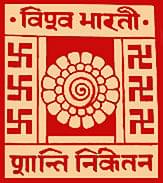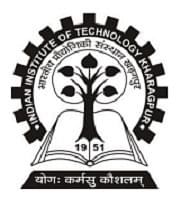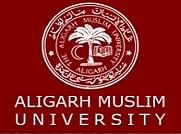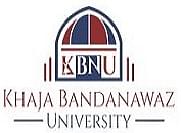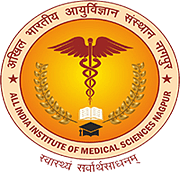Introduction about Ph. D Urdu
Ph.D. Urdu from the top college is an advanced academic program designed for
individuals passionate about the Urdu language, literature, linguistics, and
related cultural studies. This doctoral-level program offers an opportunity for
in-depth exploration, research, and scholarly engagement with various aspects
of Urdu language and literature, ranging from classical to contemporary
expressions.
Here's a structured
introduction:
1. Study of Urdu
Language:
Urdu, with its rich
literary heritage and linguistic diversity, serves as the focal point of study
in this Ph.D. program.
Candidates delve
into the intricate structures, grammar, phonetics, and semantics of Urdu,
exploring its evolution, regional variations, and sociolinguistic dimensions.
2. Exploration of
Urdu Literature:
The program
encompasses a comprehensive examination of Urdu literature, spanning classical,
medieval, modern, and contemporary periods.
Students engage
with the works of renowned Urdu poets, novelists, playwrights, and prose
writers, analyzing themes, styles, literary movements, and socio-political
contexts.
3. Linguistic and
Literary Analysis:
Ph.D. scholars
conduct in-depth linguistic and literary analyses of Urdu texts, applying
theoretical frameworks and methodologies to decipher meaning, symbolism, and
aesthetic elements.
Comparative studies
with other languages and literatures provide insights into cross-cultural
influences and literary intersections.
4. Cultural Studies
and Identity Discourses:
The program delves
into the cultural, historical, and sociopolitical dimensions of Urdu-speaking
communities, exploring themes of identity, representation, and cultural
expression.
Critical
examinations of Urdu literature in relation to gender, religion, colonialism,
nationalism, and globalization offer nuanced perspectives on societal
transformations and cultural dynamics.
5. Research
Methodologies and Scholarship:
Ph.D. candidates
develop advanced research skills, including textual analysis, archival
research, fieldwork, and interdisciplinary approaches.
They contribute to
the scholarly discourse through original research, thesis writing, conference
presentations, and publications in peer-reviewed journals.
6. Career
Opportunities:
Graduates of a
Ph.D. program in Urdu pursue diverse career paths in academia, research
institutions, publishing houses, media, cultural organizations, and
governmental agencies.
They serve as
university professors, researchers, translators, editors, language specialists,
cultural advisors, and policymakers, contributing to the preservation,
promotion, and advancement of Urdu language and literature.
In summary, a Ph.D.
in Urdu offers a platform for dedicated scholars to immerse themselves in the
richness of Urdu language, literature, and culture, fostering intellectual
growth, critical inquiry, and scholarly contributions to the field.
What is admission process of Ph. D Urdu?
The admission process 2024 Ph.D. in Urdu typically
follows a structured set of steps. While specific requirements may vary between
institutions, here's a general overview of the admission process:
Research and
Identify Programs:
Prospective candidates should research universities or institutions offering
Ph.D. programs in Urdu. They should review program details, faculty expertise,
research areas, and admission requirements.
Check Eligibility
Criteria: Applicants need
to review the eligibility criteria specified by the institution offering the
Ph.D. in Urdu program. Common eligibility requirements include:
Completion of a
master's degree in Urdu language, literature, linguistics, or a related field
from a recognized institution.
Minimum qualifying
marks or grade point average in the master's degree program.
Proficiency in Urdu
language (reading, writing, and speaking), often assessed through language
proficiency tests or interviews.
Prepare Application
Materials:
Applicants
typically need to prepare a set of documents for the application, which may
include:
Completed
application form, either online or offline, as per the institution's
guidelines.
Academic
transcripts and certificates from previous educational institutions.
Curriculum vitae
(CV) or resume detailing academic qualifications, research experience,
publications, and relevant achievements.
Statement of
purpose (SOP) or research proposal outlining research interests, objectives,
methodology, and potential contributions to the field of Urdu studies.
Letters of
recommendation from academic referees who can attest to the applicant's
academic capabilities and research potential.
Proof of language
proficiency, if required.
Entrance
Examination (if applicable):
Some institutions
may conduct an entrance examination to assess the candidate's subject
knowledge, research aptitude, and language proficiency.
The format and
syllabus of the entrance exam may vary, covering topics such as Urdu language
and literature, research methodology, and general aptitude.
Interview (if
applicable):
Shortlisted
candidates may be invited for an interview as part of the selection process.
The interview panel
typically includes faculty members from the Urdu department or program, who
assess the candidate's suitability for doctoral research, research interests,
and academic background.
Submission of
Application:
Applicants need to
submit their completed application along with all required documents within the
specified deadline.
It's essential to
adhere to the application deadlines and follow the instructions provided by the
institution.
Selection and
Admission:
After reviewing
applications, conducting entrance exams (if applicable), and interviewing
candidates, the institution selects suitable candidates for admission to the
Ph.D. program in Urdu.
Successful
candidates receive admission offers and are provided with instructions
regarding enrollment, registration, and commencement of the program.
Prospective
applicants should carefully review the admission guidelines and requirements
specified by the institution offering the Ph.D. in Urdu program and ensure that
they meet all eligibility criteria and submit all necessary documents
accurately and on time.
What is eligibility for Ph. D Urdu?
The eligibility criteria for Ph.D. in Urdu may vary slightly between institutions, but here are the
typical requirements:
Educational
Qualifications:
Candidates must
hold a master's degree (M.A. or equivalent) in Urdu language, Urdu literature,
Urdu linguistics, or a closely related field from a recognized university or
institution.
The master's degree
should be obtained with a minimum percentage or grade point average as
specified by the institution offering the Ph.D. program.
Language
Proficiency:
Proficiency in Urdu
language (reading, writing, and speaking) is essential for pursuing doctoral
research in Urdu.
Candidates may need
to demonstrate their Urdu language proficiency through language proficiency
tests, interviews, or by providing evidence of academic coursework completed in
Urdu medium.
Entrance
Examination:
Many institutions
require candidates to qualify in an entrance examination as part of the
admission process for the Ph.D. program.
The entrance exam
may assess the candidate's subject knowledge in Urdu language and literature,
research aptitude, and general aptitude in areas such as reasoning and language
proficiency.
Research Proposal:
Candidates may be
required to submit a research proposal outlining their proposed area of
research, research questions, objectives, methodology, and potential
contributions to Urdu studies.
The research
proposal helps the admission committee assess the candidate's research
aptitude, clarity of thought, and alignment of research interests with the
faculty's expertise.
Interview:
Shortlisted
candidates may be called for an interview as part of the selection process.
The interview panel
typically includes faculty members from the Urdu department or program, who
assess the candidate's suitability for doctoral research, research interests,
academic background, and language proficiency.
Academic Records
and References:
Candidates are
usually required to submit their academic transcripts, certificates, and other
relevant documents as part of the application process.
Letters of
recommendation from academic or professional references may also be required to
assess the candidate's potential for doctoral research.
English Proficiency (for International Students):
International
students or candidates from non-Urdu speaking countries may be required to
demonstrate proficiency in English.
This is often done
through standardized tests such as the TOEFL (Test of English as a Foreign
Language) or IELTS (International English Language Testing System).
What is syllabus of Ph. D Urdu?
The syllabus for Ph.D. in Urdu may vary depending on the
institution offering the program, the faculty expertise, and the research focus
areas. However, here is a generalized overview of potential topics that may be
covered in such a program:
Core Courses:
Advanced Urdu
Language Proficiency
Urdu Literary
Theory and Criticism
Research
Methodology in Urdu Studies
Comparative
Literature: Urdu and Other Languages
Linguistics and
Stylistics in Urdu
Literary Periods
and Movements:
Classical Urdu
Poetry: Ghazal, Nazm, Masnavi
Modern Urdu Poetry:
Progressive Movement, Romanticism, Postmodernism
Urdu Prose: Novel,
Short Story, Essay
Medieval Urdu
Literature: Dastaan, Qissa, Marsiya
Contemporary Urdu
Literature: Trends and Themes
Urdu Literature and
Culture:
Urdu Literature and
Sufism
Urdu Literature and
Colonialism
Urdu Literature and
Nationalism
Urdu Literature and
Feminism
Urdu Literature and
Postcolonial Studies
Special Topics in
Urdu Studies:
Urdu Drama:
History, Themes, and Playwrights
Urdu Travelogues
and Memoirs
Urdu Journalism and
Media Studies
Urdu Children's
Literature
Urdu Translation
Studies
Interdisciplinary
Studies:
Urdu and Film
Studies
Urdu and
Comparative Religious Studies
Urdu and Diaspora
Studies
Urdu and Gender
Studies
Urdu and Linguistic
Anthropology
Research Seminars
and Workshops:
Seminar Series on
Current Research in Urdu Studies
Workshops on
Academic Writing and Publishing
Presentation Skills
and Conference Participation
Dissertation
Research:
Proposal
Development
Literature Review
Data Collection and
Analysis
Writing and Defence
of Dissertation
It's important to note that the specific courses offered and their content may vary between institutions, and Ph.D. students often have the flexibility to tailor their coursework to their research interests under the guidance of their advisors and supervisory committees. Additionally, Ph.D. programs in Urdu may incorporate interdisciplinary approaches, allowing students to explore connections between Urdu literature and other fields such as history, sociology, anthropology, and cultural studies. Prospective students should review the detailed syllabus provided by the institution of interest for a comprehensive understanding of the program's offerings.





